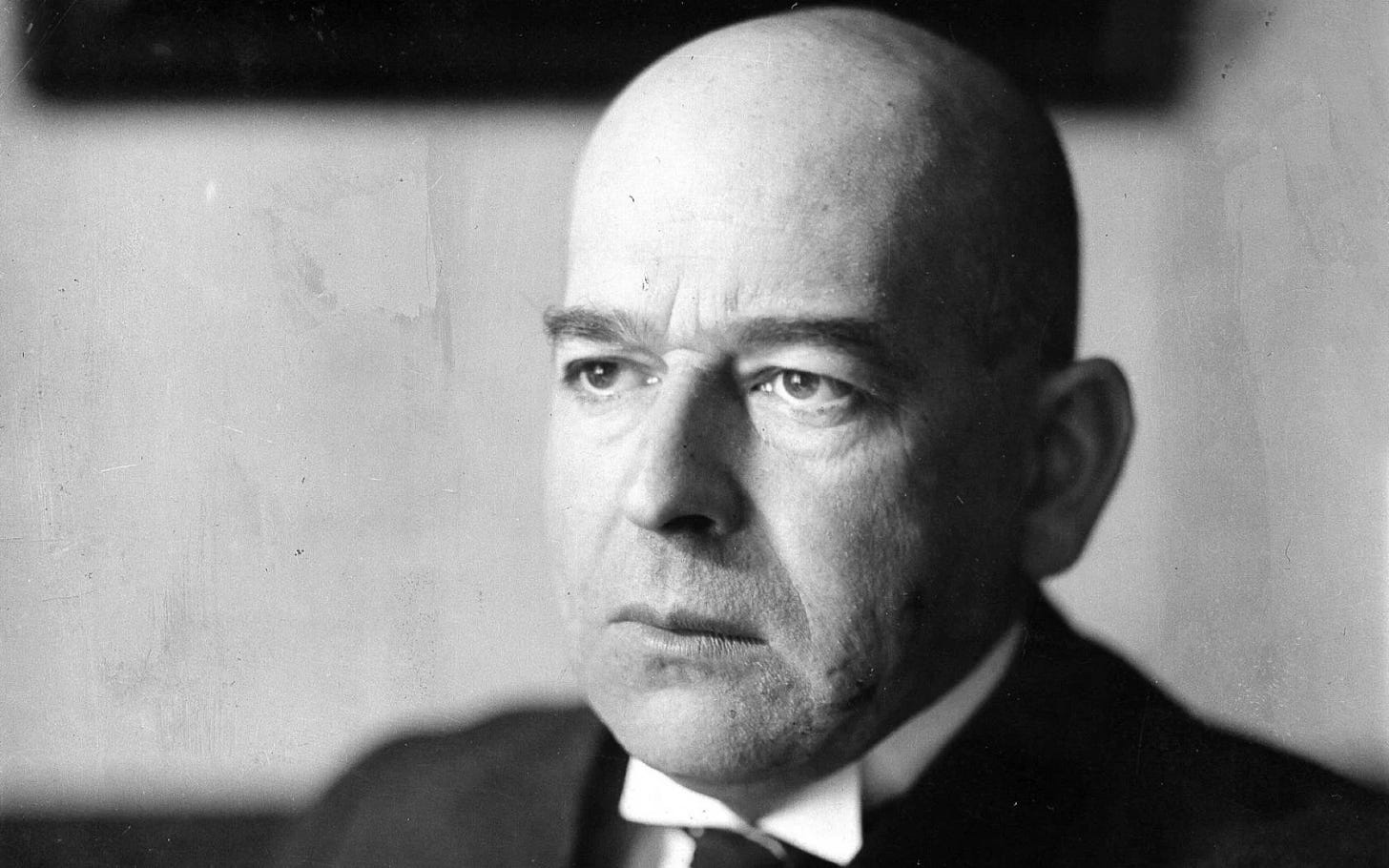Decoding the Decline
Spengler, Debord, and the Future
Do you feel it? That subtle unease, a creeping sense that something is…wrong? Not a sudden explosion, but a slow, almost imperceptible erosion. A feeling that the values, institutions, and even the very fabric of Western society are fraying at the edges. Perhaps you've noticed the rise of cynicism, the decline of trust, the constant hum of discontent. Are these isolated incidents, or are they interconnected symptoms of a larger, more profound shift? This is the question we'll explore, digging into the ideas of two crucial thinkers: Oswald Spengler and Guy Debord.
The Echoes of Spengler: Cycles of Civilization
Oswald Spengler, a German philosopher writing in the wake of World War I, famously posited a radical idea: that civilizations, like living organisms, go through predictable life cycles. Born, flourishing, and inevitably… declining. His magnum opus, The Decline of the West, argued that Western civilization was not merely experiencing a temporary crisis, but was in its final stage, a transition from a vibrant, creative “Culture” to a sterile, rationalized “Civilization.”
Spengler saw the West as moving from a period of artistic and spiritual flourishing into a phase dominated by practical concerns, economic expansion, and technological prowess. The vibrant, unifying spirit of the early stages was giving way to a cold, calculating focus on efficiency and control. He believed that this trajectory was as inevitable as the seasons. But is this truly the fate that awaits us?
Debord and the Spectacle: The Illusion of Reality
Fast forward to the mid-20th century. Guy Debord, a French Marxist theorist and filmmaker, diagnosed a different ailment. His work, particularly The Society of the Spectacle, offered a withering critique of modern capitalism. He argued that advanced capitalism created a "spectacle"—a world of mediated images and representations that replaced genuine human experience. This spectacle, Debord believed, was not just entertainment; it was a system designed to pacify and control, turning individuals into passive consumers and spectators.
The spectacle, according to Debord, promotes superficiality, distraction, and a detachment from the real. It fosters a sense of alienation, where people feel disconnected from their work, their communities, and even themselves. Ask yourself: how much of your life is lived through screens? How much of your identity is shaped by curated images and fleeting trends? Could this be part of the West's malaise?
Symptoms of a Silent Collapse
So, what does a Spenglerian decline, refracted through the lens of Debord’s critique, look like in practice? Consider the following:
Hyper-Individualism: The erosion of community bonds and the rise of a self-centered focus.
The Decline of Traditional Institutions: The weakening of family, church, and other pillars of social order.
Economic Disparity: The widening gap between the rich and the poor, creating resentment and instability.
Political Polarization: The fracturing of consensus and the rise of tribalism.
Loss of Cultural Meaning: The search for identity in a world of fleeting trends and shallow values.
These issues, often discussed in isolation, might be interconnected symptoms of a deeper transformation, a subtle collapse of the social and cultural foundations upon which the West was built. Perhaps the problems go beyond the economic or the political, digging into our collective psyche.
The Spectacle's Grip: The Modern Arena
Debord’s insight into the “spectacle” illuminates how this decline might be unfolding. Consider how the relentless flow of information, the constant bombardment of images, and the pervasive influence of social media shape our perceptions. The spectacle doesn’t just entertain; it shapes our desires, our values, and even our understanding of reality. It feeds on our anxieties, our insecurities, and our longing for connection.
“The spectacle is not a collection of images, but a social relation between people, mediated by images.” - Guy Debord, The Society of the Spectacle
This constant mediation, this distance from authentic experience, can lead to a profound sense of emptiness and meaninglessness. Is it any surprise that we see a rise in escapism, addiction, and a general sense of discontent? To understand more about how this is playing out in real time, check out the following YouTube video:
Looking Ahead: Charting a New Course
If Spengler and Debord are correct, what does the future hold? Are we destined for a preordained decline, or can we chart a different course? The answer is not simple, but understanding the forces at play is the first step. Here's a few thoughts on what can be done.
Cultivate Critical Thinking: Develop the ability to question the narratives and images that bombard us daily.
Rebuild Community: Focus on strengthening local bonds and fostering meaningful connections with others.
Embrace Authenticity: Seek out experiences that are real, raw, and unmediated by the spectacle.
Revive Meaning: Reconnect with enduring values, traditions, and a sense of purpose.
The key is to move beyond passive consumption and become active agents in shaping our own destinies. It involves recognizing the limitations of the spectacle, resisting the lure of superficiality, and embracing a deeper, more authentic way of being.
Unlock deeper insights with a 10% discount on the annual plan.
Support thoughtful analysis and join a growing community of readers committed to understanding the world through philosophy and reason.
The Choice Before Us
The theories of Spengler and Debord offer a stark warning, a powerful diagnosis of the challenges facing the West. They challenge us to look beyond the surface and confront the deeper forces shaping our world. The sense of unease, the creeping feeling of decline, may be a signal that something profound is happening.
However, the future is not predetermined. By understanding the patterns of decline, we can choose to resist them. We can choose to build a new, more meaningful, and more sustainable future. The path forward requires courage, critical thinking, and a willingness to challenge the status quo. It requires a profound commitment to rebuilding a vibrant Culture, resisting the sterile grip of Civilization, and moving beyond the mesmerizing illusions of the spectacle. The choice, ultimately, is ours.



